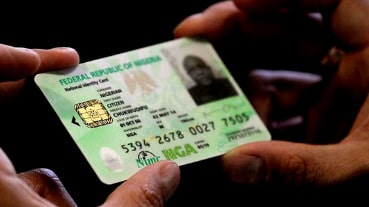Nigeria’s digital ID, the National Identification Number (NIN), is increasingly getting solicited for different authentication use cases. Recently, the Central Bank of Nigeria (CBN) announced that from March 1, 2024, all Tier-1 accounts will compulsorily have to be linked to either the biometric-based Bank Verification Number (BVN) or the NIN of the account owner. Relatedly, beneficiaries of a World Bank-sponsored agricultural program known as the Agro-Climatic Resilience in Semi-Arid Landscapes (ACReSAL), in the State of Niger, have been told that they must present their national ID card for verification before benefiting from program grants. These developments come just when the ID-issuing authority – the National Identity Management Commission (NIMC – has pledged that it is ready to expand its collaboration with the country’s state governments to allow them use its database to verify those seeking important public services.
Accounts not linked to BVN or NIN to be frozen
Calls by the CBN for Tier-1 bank accounts to be linked to the BVN are not new. Now, the central bank wants the accounts linked to either the BVN, the NIN or the two, as reported by Arise News.
The move is part of the Bank’s efforts to strengthen account security through an enhanced Know Your Customer (KYC) approach.
Failure to do this linkage by the stated deadline will have the accounts put under the category of “Place no Debit or Credit,” which means no transactions will be possible on the said accounts.
According to the country’s apex bank, accounts already linked to these ID credentials will be re-confirmed by January 31 at the latest.
In a circular addressed to all banking industry stakeholders, the CBN said all customer accounts and wallets which are up-to-date with the NIN or BVN will immediately be included to the NIBSS Industry Customer Account Database (ICAD).
Before this announcement, it was only mandatory for Tier-2 and Tier-3 accounts and wallets to be linked to the BVN and NIN.
ACReSAL beneficiaries must present ID cards for verification
Around 70,000 persons from different Local Government Areas (LGAs) of Niger State who have been enrolled for the ACReSAL project will be required to show their national ID card before they are served.
This is according to the Project Coordinator Abdulhamid Umar who spoke while leading a team of officials recently to authenticate some registered beneficiaries in two LGAs, Blueprint reports.
Umar said the verification and authentication process is extremely important as it would ensure that the beneficiaries get what is rightly theirs. He added that they are working in collaboration with the NIMC to see to it that those registered are verified using the NIN.
ACReSAL is a multi-sectoral and multi-institutional project fashioned to combat desertification, restore degraded lands, and special ecosystems for agriculture and biodiversity conservation in some parts of Nigeria.
NIMC to expand collaboration with state governments
As part of its push to support state governments in their socio-economic development pursuits, the ID-issuing authority says it will avail sub national governments of more support by putting the national ID database at their disposal.
Citing a statement attributed to the NIMC Director General, Abisoye Coker-Odusote, Punch reports that the move is to enable states offer better services to their citizens and also to help them adopt informed public policy options.
Not long after taking over the helm of the NIMC, Coker-Odusote pledged to work towards expanding digital ID coverage in the country in order to better meet some of the existing as well as emerging development needs of the local people.
In the meantime, an opinion posted to Linked describes the NIMC boss as the right person for the job. The article praises Coker-Odusote for her transformational leadership qualities and innovative tendencies which are aimed at revolutionizing the ID-issuing authority and put it in a position to better contribute to the nation’s socio-economic development.
Article: Nigerian banks, Agric program to require digital ID from customers, beneficiaries
